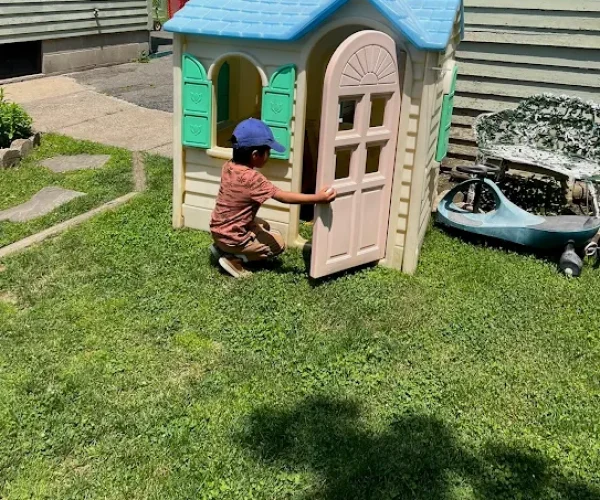Recreational and Educational Activities

Children learn best when they’re having fun. Every moment of the day is an opportunity to discover, experiment, and develop new skills. That’s why our recreational and educational activities program has been carefully designed to promote holistic learning through play, art, music, and exploration.
From our company’s perspective, this service is at the heart of our mission: to create an environment where education and care go hand in hand. We focus on nurturing children’s natural curiosity, stimulating their imagination, and strengthening their physical, emotional, social, and cognitive development.
Our certified early childhood educators design activities according to each age group’s developmental stage, ensuring experiences that are appropriate, safe, and meaningful.
How We Develop Our Recreational and Educational Activities
At Baby Town Daycare, every day is carefully planned to ensure children learn, have fun, and grow.
Development Evaluation and Age Grouping
Upon enrollment, each child is assessed to identify their age, developmental level, interests, and abilities. This allows us to group them by stage (infants, toddlers, preschoolers) and tailor activities to their skills and learning pace.
Weekly Educational Activity Planning
Our teaching team prepares a weekly learning plan that combines different areas of development:
– Cognitive area: counting activities, color and shape recognition, and pattern identification.
– Linguistic area: storytelling, songs, narration, and word games.
– Motor area: physical games, finger painting, cutting exercises, coordination activities, and outdoor play.
– Social and emotional area: group dynamics, cooperation, empathy, and conflict resolution.
– Creative area: art projects, theater, music, and dance to encourage self-expression.
Daily Implementation of Recreational Activities
Each day alternates between guided and free activities, combining structured playtime with spontaneous exploration. Example: Morning: Basic academic activities (colors, numbers, letters). Afternoon: Recreational activities such as art, music, role-playing, or outdoor play.
Incorporation of Sensory and Emotional Learning
We prioritize experiences that engage the senses — touch, listen, watch, smell, create — because early learning is deeper when it’s lived in a hands-on and emotional way. We also promote emotional intelligence by helping children identify and express their feelings in positive ways.
Ongoing Evaluation and Feedback
We observe each child’s progress, noting their advances in language, motor skills, behavior, and participation. These observations are shared periodically with parents, along with recommendations for reinforcing learning at home.
